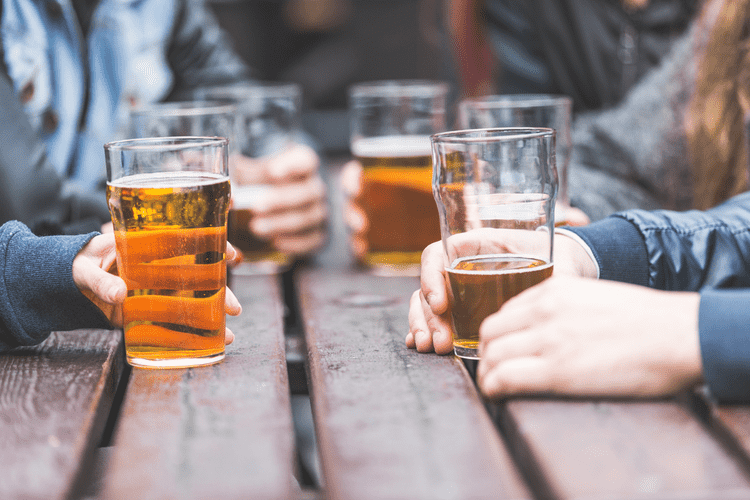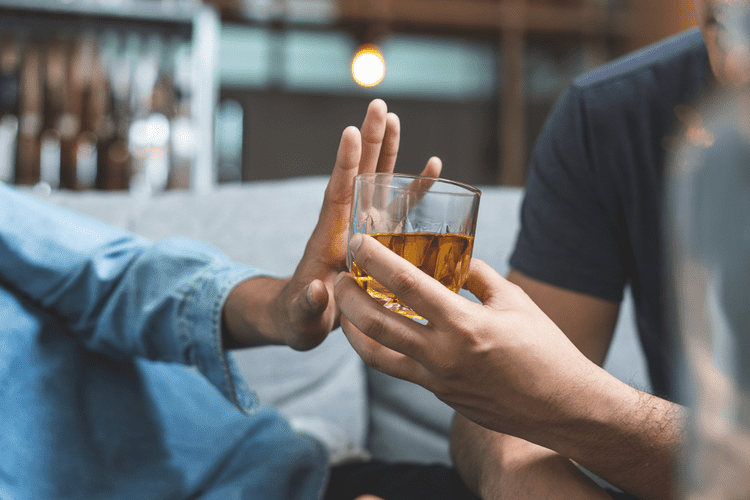I think the best approach is always to gather more data to better understand what the actual risks and benefits are to both individuals and society. I don’t necessarily think we should stop the use of off-label ketamine, but it should be studied more rigorously. The best way to do that is through some type of registry, which I’ve been trying to form for years. But how you form one is tricky, and there’s a lot of concern that if you make this registry too restrictive, you would reduce accessibility to patients. There’s always that fine balance—you don’t want to restrict access to patients who are trying to get care, but on the other hand, you want to make sure that you’re using a drug that is safe and effective and that you have a way of collecting data. When you take either form of ketamine, it has significant effects on cognition, meaning that you’re no longer thinking clearly at all.
Should you go to a ketamine clinic for treatment?

Ketamine is an N-methyl-d-Aspartate receptor agonist with well-established safety and efficacy as an analgesic and anaesthetic. A growing body of scientific research supports the rapid antidepressant and anti-suicidal effects of ketamine in treating TRD and bipolar depression. In particular, clinical use of ketamine is rapidly expanding, despite the lack of sufficient data and few standardized guidelines to direct its use, particularly for maintenance treatment and for other formulations such as sublingual, oral, and intramuscular. Larger studies of repeat-dose administration and long-term treatment data are both needed to inform evidence-based practice guidelines.
What Exactly Is Ketamine Therapy For Depression?
In the secondary analysis, the less conservative but clinically meaningful criterion of stable response (defined as a 50% or more reduction in MADRS from baseline for two weeks) was used. Of the patients who achieved stable response, 25.8% in the esketamine group and 57.6% in the placebo group relapsed, with a median time to relapse of 635 days for the esketamine group compared to 88 days for the placebo group. This study demonstrated that, in patients with TRD who achieved remission or response after esketamine treatment, continued esketamine augmentation in addition to oral antidepressants led to a clinically meaningful delay in relapse. In 2019, the FDA approved intranasal esketamine, the S-enantiomer of ketamine, in conjunction with oral antidepressants for the treatment of TRD in adults. In 2020, it was FDA-approved to treat adults with MDD and acute suicidal ideation or behavior. Due to concerns of possible adverse effects and potential abuse, esketamine was approved through a Risk Evaluation and Mitigation Strategy (REMS).
How does ketamine therapy work?
For psychiatrist Alan Schatzberg, MD, who did some of the research that uncovered this, that’s concerning. The esketamine nasal spray has a “black box” warning about the risk of sedation and trouble with attention, judgment, and thinking, what is alcoholism as well as risk for abuse or misuse of the drug and suicidal thoughts and behaviors. Jeff Winograd, who’s lived with depression for more than 25 years, says ketamine treatment saved his life. While these factors left ketamine as an antidepressant less than ideal, they didn’t leave it dead in the water. The process is harder in practice than it sounds, but it’s what Dr. Manji, who left NIMH in 2008, set out to do.
Announcing the 2025 Bloomberg American Health Fellows

Also, note that there are drug-to-drug interactions that may make ketamine use unsafe, such as benzodiazepine sedatives and opioid analgesics, as well as stimulants used for ADHD. So it’s best to discuss ketamine with your doctor or clinical pharmacist first. Emerging research suggests that ketamine may be useful for chronic pain and neurologic conditions, though https://ecosoberhouse.com/ further research is needed in these areas. Psychedelics like LSD, ecstasy, and even magic mushrooms have been shown to offer some mental health benefits. Mindfulness-based stress reduction teaches mindfulness meditation to help people live in the moment and manage stress. Dialectical behavior therapy (DBT) helps people manage intense emotions by combining individual and group therapy with skills training and coaching.
Will Your Commercial Insurance Cover Your Preferred Treatment?
KAP may be partially covered by insurance, but you should check with your insurance company for specific coverage details.28 Some insurance plans may cover the therapy sessions, but not the ketamine medication itself. “I think it’s probably less addictive than opioids, but it’s not without its risks,” says Schatzberg, who is the director of Stanford University’s Mood Disorders Center. In the brains of some people with depression, those nerve cells don’t get so excited by glutamate anymore. It’s as if those glutamate receptors – the catcher’s mitts – get so worn out or weak that they can’t grasp the glutamate anymore.
- An average dose of 2 mg/kg (1 mg/lb) is typically needed to induce around 5 to 10 minutes of anesthesia or dissociative effects.
- The drug is completely safe when administered in medically supervised therapeutic settings.
- It has to be delivered intranasally, in a certified health care setting under the supervision of a health care professional, and patients must remain in the facility for two hours after dosing.
A list of studies that appeared to meet the inclusion criteria but were excluded, and reasons for exclusions, are provided in Supplementary Table 1. These side effects may happen in 1 out of 10 people during ketamine therapy. If they are severe, the clinician can useanother medication to treat the symptoms. In some people, smaller doses of ketamine can improve some psychiatric symptoms, such as depression and thoughts of suicide. That said, research on the benefits of ketamine for depression remains relatively new.

However, ketamine is only safe when a person takes the drug their doctor has prescribed for a specific purpose. Refractory status epilepticus (RSE) is a form of status epilepticus that does not respond to standard antiseizure drugs. For 80 years, Mass General’s Psychiatry Department has provided the highest ketamine addiction quality patient care through pioneering research. Always consult your healthcare provider to ensure the information displayed on this page applies to your personal circumstances. Avoid driving or operating machinery for at least 24 hours after you receive ketamine.
Executive HR and organisation specialist and Sheskillz Global Mentor and investor
-
Annabelle Thebaudhttps://sheskillsglobal.ch/author/annabelle/
-
Annabelle Thebaudhttps://sheskillsglobal.ch/author/annabelle/
-
Annabelle Thebaudhttps://sheskillsglobal.ch/author/annabelle/
-
Annabelle Thebaudhttps://sheskillsglobal.ch/author/annabelle/














